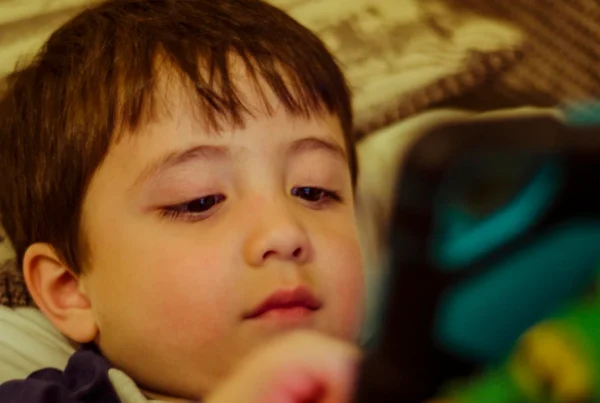Resilience in children is one of the most valuable skills they can develop in their early years. It refers to the ability to bounce back from setbacks, adapt to challenges, and grow stronger through difficulties.
Resilience in children is seen not just as a way to survive life’s challenges but as a way to thrive with confidence, faith, and purpose.
When resilience is nurtured from a young age, it becomes the foundation for success in school, relationships, and future careers, all while remaining grounded in God’s truth.
Read also: 5 Tips for Mindful Parenting in the Digital Age: Finding Balance for Your Kids
What many parents might find surprising is that one of the most effective ways to build resilience in children is through something as simple as play.
Beyond the laughter and joy that it brings, play provides countless opportunities for children to experience setbacks, solve problems, and try again.
Each small moment of perseverance, whether rebuilding a toppled block tower or navigating the rules of a board game, contributes to the larger skill of resilience.
Understanding Resilience in Children
Resilience in children is the ability to cope with stress, face challenges with courage, and recover from adversity. A resilient child does not give up easily during school struggles, social conflicts, or small disappointments.
Instead, they develop problem-solving skills, regulate their emotions, and move forward with confidence.
Why Resilience Matters?
Children who are resilient are better equipped to adapt to the changes and uncertainties of the world. With inner strength, they balance emotions with confidence and build a strong sense of stability. This matters because:
- It lowers the risk of anxiety, bullying, or other negative experiences that can affect child development
- It helps kids and teenagers see challenges as opportunities to grow in character and faith
- It prepares them for the future by giving them confidence and hope
Resilient children tend to thrive not only in academics but also in friendships, family life, and spiritual growth. Their resilience becomes a protective factor that supports both well being and long-term success.
How Parents and Communities Can Help Your Child?
Resilience does not grow in isolation. Young children, especially, benefit when they feel safe and supported at home, in school, and in their communities. Together, parents, teachers, and family members can help build your child’s resilience by:
- Encouraging children to talk about their feelings and challenges
- Providing consistent support and positive example in daily life
- Allowing them to face tough times instead of shielding them from every difficult experience
- Celebrating small victories to strengthen their confidence step by step
Through encouragement, guidance, and faith, young children learn to face adversity with strength. With every challenge they overcome, your child then can develop resilience that prepares them for the future.
A Christian Perspective on Resilience in Children
From a biblical perspective, resilience in children is not only about strength but also about how faith shapes their response to challenges.
Scripture teaches that difficulties are not meaningless, but opportunities for growth in character and trust in God.
As James 1:2–4 reminds us, we are to “consider it pure joy… whenever you face trials of many kinds, because you know that the testing of your faith produces perseverance.”
In a similar way, Romans 5:3–4 explains that “suffering produces perseverance; perseverance, character; and character, hope.”
With this perspective in mind, play becomes more than just an activity for children.
It provides a safe space where they can encounter small challenges, practice perseverance, and experience the joy of not giving up.
Just as God strengthens His people through trials, children discover through play that each attempt to try again builds character and hope.
Parents and teachers, then, are not simply supervising play but actively guiding children toward lessons that reflect God’s Word on perseverance and faith.
How to Build Resilience in Children Through Joyful Play
Play is one of the simplest yet most effective ways to guide children through tough times.
More than just a way to have fun or spend time, play shapes a child’s resilience by teaching them how to bounce back, adapt, and move forward. Even very young children can benefit from playful experiences that encourage problem solving skills, patience, and courage.
Read also: How to Choose Extracurricular Activities for Kids in Every Age
When many children play, they discover that mistakes or failures are not the end. Instead, they are invitations to try things differently and grow.
Over time, these small lessons strengthen a child’s well being and become protective factors for their mental health and overall development.
1. Learning from Everyday Play
Daily play provides natural opportunities for children to practice perseverance and adaptability. In simple moments, they learn lessons that prepare them for life:
- Games and competition: Losing teaches children that it is possible to try again.
- Building activities: A block tower that falls can be rebuilt, showing that resilience grows step by step.
- Group play: Playing with family or friends nurtures patience, cooperation, and negotiation.
- Outdoor play: Activities like climbing or team sports allow children to test limits, face safe risks, and celebrate perseverance.
Each of these experiences helps children build confidence and thrive in both victories and setbacks.
2. Strengthen Resilience Through Different Types of Play
Play creates valuable opportunities for children’s development without them even realizing it. Research shows that different forms of play benefit resilience in unique ways:
- Free play helps children build independence, strengthen their decision-making, and develop problem-solving skills naturally.
- Structured games such as board games teach children to manage frustration, follow rules, and respect others.
- Construction play with puzzles or building blocks strengthens creativity and perseverance when things don’t go as planned.
- Pretend play lets a young person step into different roles, helping them build empathy and flexibility.
- Outdoor play encourages physical activity, teamwork, and resilience during both challenges and successes.
When many children engage in these forms of play, they are not only having fun but also developing resilience that will serve them well throughout life.
3. Building Resilience in Children Through Faith
Building resilience in children is both a life skill and a spiritual journey. As a Christ-centered school, SPH believes that play offers a natural way for children to connect everyday experiences with biblical truths—including the value of resilience.
Through play, children discover that every experience holds meaning:
- When they lose a game, they learn humility and perseverance.
- When they finally win after many tries, they learn to give thanks to God for the strength He provides.
- When challenges arise, they begin to see that God is always present and that setbacks can lead to growth.
Parents play a vital role in nurturing this growth. By allowing children to face small disappointments rather than shielding them from every difficulty, parents give them space to build confidence and develop healthy coping skills.
Reflection, prayer, and gentle conversations at home help children connect their experiences with faith. In the same way, teachers guide them to understand their feelings during play, learning to trust God in every season of life.
Read also: 5 Fun Activities for Kids Indoors to Boost Your Child’s Creativity at Home
4. Grow Lifelong Resilience by Embracing Challenges in Play
Resilient children are better prepared to face tough times with courage and faith. They learn to see challenges as chances to grow rather than setbacks to fear.
For young people, these skills provide protective factors that strengthen both academic progress and mental health.
The Bible reminds us that perseverance produces character and hope. This truth applies not only in big life struggles but also in small moments of play.
As children thrive in these experiences, they build a foundation of well being and faith that will carry them throughout their lives.
Partner with SPH Today to Nurture Your Child’s Faith, Character, and Resilience
At Sekolah Pelita Harapan, we believe that building resilience in children is not only about preparing them for academic success but also about nurturing their faith, character, and well-being.
Whether through play, family guidance, or spiritual encouragement, every experience shapes resilient children who are ready to face the future with confidence and hope.
If you are a parent seeking the right foundation for your child’s growth, we invite you to explore our international school in Bekasi, as well as our campuses in Jakarta and Bogor, and discover how our community can support your child’s resilience and holistic development.
As one of the leading international schools in Indonesia, SPH provides both excellent education and faith-based values that guide young people through life’s challenges.
Join the SPH community today. Our admissions team is ready to guide you in providing the best foundation for your child’s growth!









